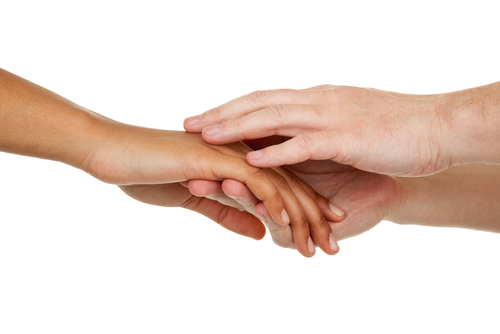Understanding Alien Hand Syndrome: Symptoms, Causes, and Treatments


What is Alien Hand Syndrome
Alien Hand Syndrome (or AHS) occurs when your limbs or hands function independently from other parts of your body and are out of your control. Encountering this phenomenon for the first time can be a terrifying experience, especially when it’s happening to you. You’ll feel as if someone has hacked your limb and is purposely making it do things you don’t want it to do. People with AHS simply aren’t in control of whatever their hand does. Every movement it makes seemingly ignores directions given by the brain.
Symptoms can vary, but the most common ones associated with AHS affected individuals include touching other body parts, objects, or clothing, holding things and not being able to release them, or even just raising your hand and waving it, of course, done without intention. This can be very disruptive to one’s daily life when they have to manage independent and unresponsive hands that may, at any minute, perform involuntary and even conflicting actions. This tends to be distressing as it causes embarrassment and creates insecurities, forcing those impacted to feel alienated and alone. The length of time AHS symptoms occur can range from as little as 30 minutes to even several years and varies between each person.
Underlying Causes
According to scientific research, AHS can often be linked to injuries or lesions in certain areas of your brain. These consist of three key regions.
frontal region – the part of your brain behind the forehead
corpus callosum – your brain’s centre between the left and right hemispheres
The parietal region – the top back area of your brain that sits under your skull’s crown.
Trauma to any of these areas of the brain from significant events such as the aftermath of a surgery or underlying conditions may potentially put you at risk of developing AHS. When you want to move a hand, nerve cells called neurons activate to help deliver the message through your nervous system. With AHS, this activation only occurs in some regions of the brain, hence indicating that your neurons aren’t functioning as they should.
On top of this, other conditions can also lead to the development of AHS. This includes Alzheimer’s Disease, Migraine Aura, Brain Tumors, and even Parkinson’s Disease. Although extremely rare, stroke has also been reported to be a contributing factor for a few affected individuals.
Diagnosis, Treatment & Management
While there aren’t specific tests for AHS, healthcare providers are trained to review your symptoms through performing physical exams and providing a diagnosis. Although quite a few medical conditions can cause involuntary movements, your examiner can rule out conditions with similar symptoms and even order imaging tests such as an MRI (Magnetic Resonance Imaging) to help detect lesions in your brain.
Unfortunately, as of now, there has yet to be a legitimate cure for Alien Hand Syndrome. There are, however, treatment options that can help alleviate symptoms and manage underlying conditions that may contribute to AHS. Here are a few that are recommended.
Medication
Neuromuscular blocking agents or antiseizure medications can help reduce sudden spikes in hand movements in those with AHS by blocking neurons from making connections with the affected hand. Other similar medications can be considered depending on the severity of the involuntary action.
Mirror Box Therapy
This form of therapy involves creating illusions with mirrors to convince your brain that one of your limbs is in your control and has moved voluntarily.
Botulinum Injections
Like neuromuscular blocking agents, Botox agents can help reduce muscle activity in the affected area with the aim of reducing involuntary movements. Repair treatments, however, may be needed after several months.
For people living with AHS, it’s understandable how tricky it can be to navigate daily life. If you find yourself also experiencing involuntary movements by any chance, it’s a smart idea to start reaching out to qualified health professionals, especially those who have graduated in online rn to np programs to get an early kickstart in addressing potential causes and risk factors. Whilst uncommon, AHS can also be an indication of a stroke, in which one will need medical attention at that point.
Even if it’s not as severe, we recommend still talking to somebody qualified. A provider, for instance, can help suggest ways for you to treat such conditions by implementing tricks and relaxation techniques to help lessen the effects of AHS.





